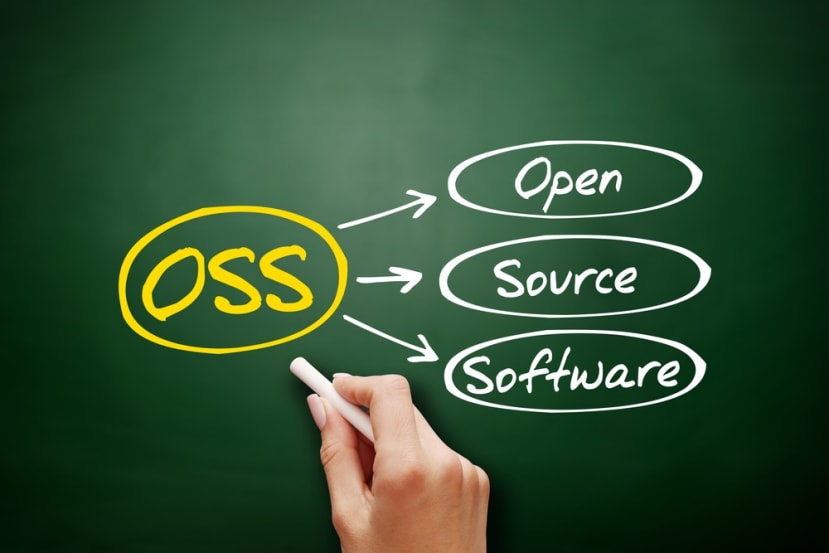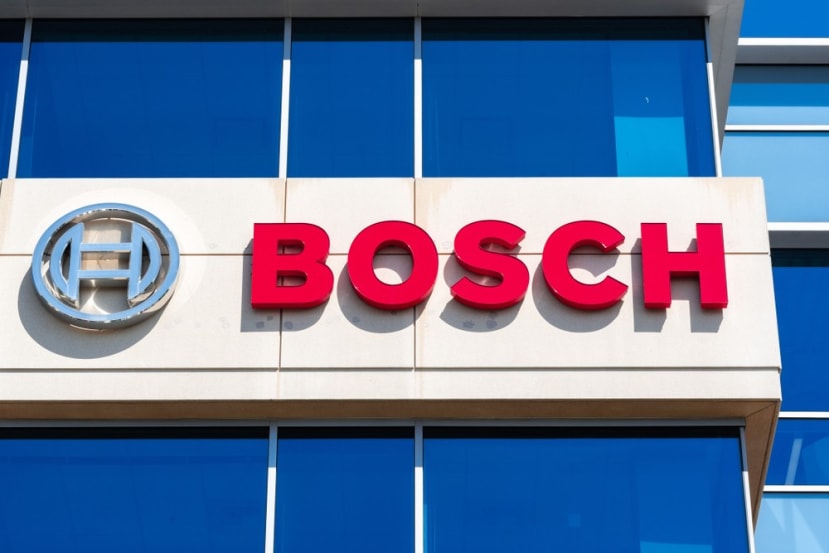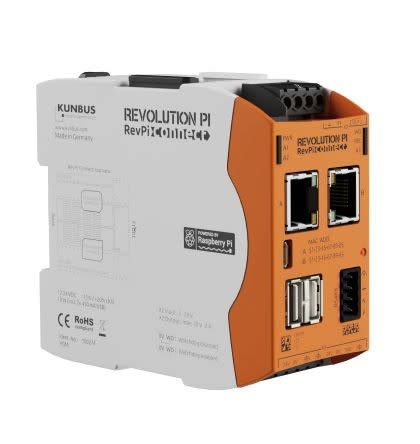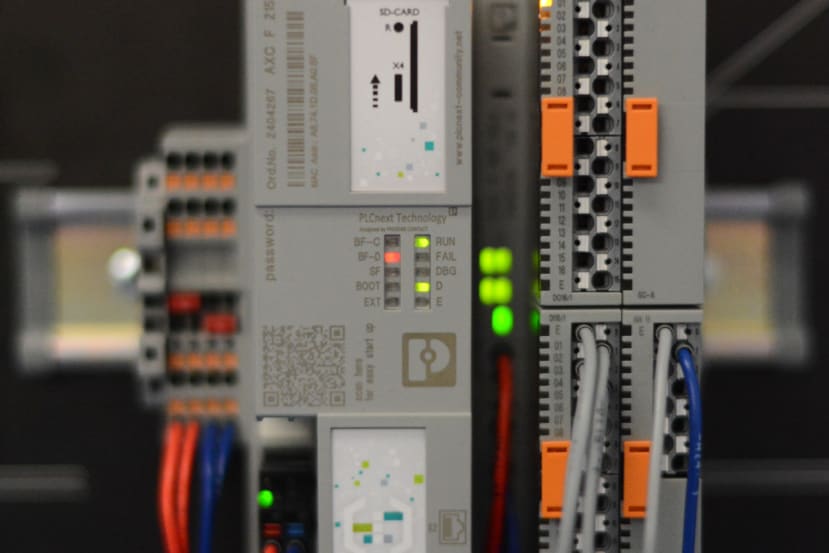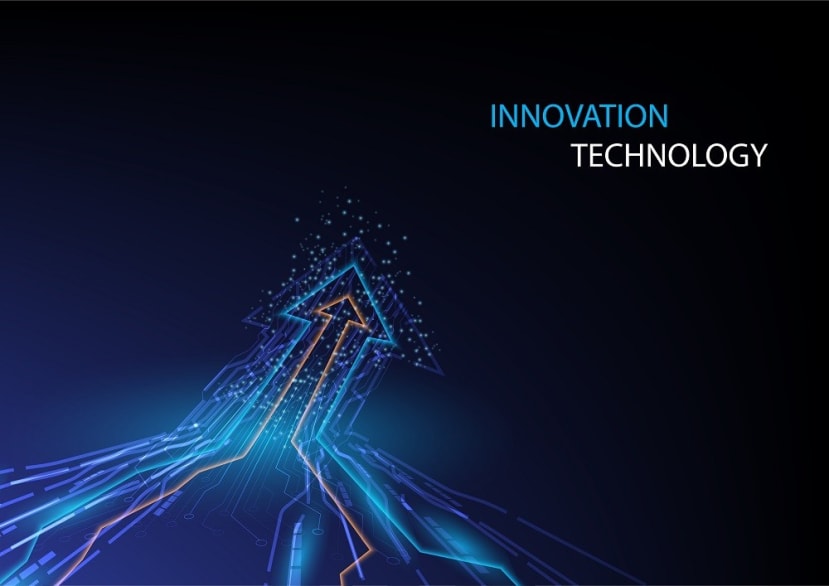5 +1 things driving IIoT and 4.0: Part 2, Open-Source
Follow articleHow do you feel about this article? Help us to provide better content for you.
Thank you! Your feedback has been received.
There was a problem submitting your feedback, please try again later.
What do you think of this article?
Let us look at the present and the future of OSS (Open Source Software) in industry, especially the automation industry. The OSBA (Open Source Business Alliance) has started its Working Group "Industry 4.0". It is aiming to establish open interfaces because this will be crucial for industrial digitalisation. Bosch is one of the big companies already using OSS and the underlying philosophy for their research and products. These two examples alone should make companies in the automation industry aware of a progressing change of mind.
The Present
Bitkom has recently published its 2020 survey results (PDF download). Founded in 1999, Bitkom is Germany's digital association with more than 2,700 digital economy companies from startups to global players. The companies covered a broad field of the industry, including automotive.
Although two-thirds of the participating companies do already use OSS, the survey does reveal deficits in understanding the basic concepts of open source and a misleading bias on short term financial benefits due to savings in license costs. OSS's primary usage also seems to be in ICT (Container technology, Big Data & Analytics, Cloud Computing). Using OSS in controlling machines in the automation industry appears to be no vision for the industry. Only one per cent of the participating companies have created a formal position to be responsible for OSS. In only 5% of the companies, OSS's driving factor is the company's management. Singel employees (30%) and single departments (58%) are the driving forces.
The survey shows a lack of understanding that opensource is a well-balanced process of giving and taking. Only 31% of companies do participate in OSS development. And again under those participating in OSS development, there is a bias of short term financial reasons. For only 31% of them (which makes up to about 10% of the participants) open source is part of their innovation strategies.
Only a small minority has recognised some of the essential advantages of the open-source concept (independence from propriety providers, source code access, open standards and interoperability, etc.). But there are still many preconceptions like security risks, legal risks and the lack of experts.
Especially the legal risk seems to be biased by the advocates' industry: The fact that 46% of the companies use external help from law firms, does not fit the truth that against only 3% of the companies, legal action has been taken. From this 3%, there are 71% who only have received notice without legal consequences, and just 4% have lost against an OSS copyright holder.
12% of the participating companies see a lack of specialists who could use the available OSS and adapt it to its needs. This might be a consequence of a different OSS community mentality: You will not find expensive offers for training courses. But you must be able to google and be willing to ask your questions openly. The company's internet policy often blocks such behaviour. Enthusiastic employees sometimes have to use their private time and internet account to gain the knowledge they need to implement OSS. Conservative managers will need to change their mind when they want to use the advantages of open source. If you want to use swarm intelligence and swarm investment of time, you need to become a swarm member. You cannot just consume without supplying.
It is good to know that companies out there have fully understood the open-source concepts. Bosch, e.g., even has adapted the idea for internal use (called "inner source", read this free PDF-book) and is a light tower for OSS and open-source hardware in the automotive and automation industry. They do not only see the financial advantages of sharing knowledge to split development costs and accelerate innovation instead of keeping secrets. By the way companies of ICT like Facebook, Intel, IBM and many more have realised these advantages long ago and are part of the Open Compute Project. Bosch believes that opens source concepts will bring a benefit for everyone. They are an active part of the open-source development community. For instance, they want to accelerate the development of standard interfaces and libraries or tools, like the Robotic Operating System ROS, or the Application Platform Project for MultiCore (Eclipse APP4MC).
Even the conservative safety industry has started hopping on this bandwagon: PILZ, for instance, is not only using ROS but also part of the developing community.
Four years ago, KUNBUS launched its "Revolution Pi" (193-8180) with the first completely open-source (hardware and software) EN61131 compliant PLC / IPC.
Phoenix Contact has launched its PLCnext (205-5854) which uses a Linux derivate as OS. They have been aware of the copyright problems when using the wrong license model: Models like GPL (GNU) are "copyleft" licences which would legally bind you to publish your derivates of the used OSS under the same conditions. But using, for instance, BSD or MIT models without copyleft will allow you to protect IP for parts of the software you have developed. Although this is not what open source wants to be, it will make the participation easier initially.
But let's have a look into
The Future
The more schools, colleges and universities will teach using OSS and open-source hardware, the more it will become easy for companies to find employees willing and able to participate in open source projects. Lack of knowledge will no longer be a problem, but the "onboarding" of young professionals will take less time as they are already familiar with most of the tools and concepts. When even standards (like MQTT) are developed in the open-source community, these standards are no longer highly specialised knowledge.
When companies are no longer imprisoned by vendor lock-in but have deep insight into the open-source parts they are using, they can cooperate in improving them. Parts will become cheaper, and the supply chains will become more reliable.
There will be more open-source based protocols like MQTT, resulting in much better interoperability of machines from different vendors. Companies selling machines often do not have any motivation to integrate older equipment in an overall concept. They want to sell their new products. But open-source community-based developments do care about "retro-fit". This is much closer to the existing workshop and shop floor reality. The customers will no longer tolerate a PLC without an open interface for using valuable data with other connected systems.
IIoT and the digitalisation of industry 4.0 will no longer allow technologies and concepts like the traditional PLC to be used for decades. Due to security issues alone, modern concepts and technologies will be much more dynamical and demand a much higher innovation speed. Only a handful of companies could keep up with this dynamic without using swarm intelligence and working power. In ICT, open-source projects positively drive the most dynamic fields of innovation like AI / ML. I do not doubt that the same will happen with OT as soon as machines get connected.
I also do not doubt that certifications and functional safety will not be the significant game killers for open-source in OT. Security technology in ICT has proven that open concepts are even more secure because of crowd supervision. Propriety secrets can't merely cover security lacks. Why should that be different with functional safety?
There are many reasons for me to believe that open-source concepts will be one of the driving forces for IIoT and industry 4.0. What is your opinion? Please write down your comment and let me know!
See Part 1 of this article for more information on 5 +1 things driving IIoT and 4.0


